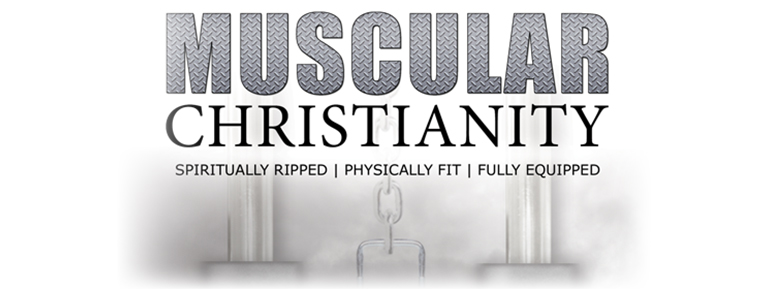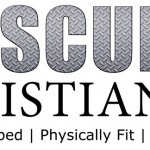How Do You Know You’re Saved – Are You Willing to Pull Over?
 Abstract
Abstract
Some see Christ as a spiritual appliance more than a Divine Absolute. Rather than staying in their lane, they drive on the wrong side of the road and when the Holy Spirit pulls up alongside them and instructs them to pull over, they simply roll down the window, say “I’m sorry, please forgive me!” and keep right on driving as they did before.
They have a “form of godliness” but deny its power (2 Tim 3:5). They don’t see sin as a problem as much as it’s an unavoidable handicap.
How do you know you’re saved?
Are you willing to pull over?
Intro
How do you know you’re saved?
Perhaps you’re being asked by someone who’s wondering if simply “believing” is all that you need to do, or maybe you’re being approached by somebody who’s got some regrets that they’re trying to process and they can’t help but wonder if perhaps they’ve crossed a line and their relationship with Christ is no longer intact.
What makes this topic potentially complicated is that, on one hand, you’ve got the Truth that says all you need to do is “believe.” That’s part of makes Salvation so amazing is that it’s not something you can earn, you simply believe in your heart (Eph 2:8-9).
But then you’ve got this other dynamic that says that there needs to be some kind of outward “proof” that a commitment to Christ is in place (Lk 6:44). The Bible calls this “fruit…”
When we repent of our sin and receive Jesus as Lord of our lives (John 1:12; Acts 2:38), He changes our hearts (2 Corinthians 5:17). Now the fruit that is produced is good fruit. Galatians 5:22 lists some of the fruit produced by a heart in tune with God. Our attitudes, actions, words, and perspectives change as we walk in fellowship with the Holy Spirit (1 John 1:6–7). When our hearts change, our fruit changes. (gotquestions.org)
James also talks about this kind of thing when he references faith without deeds…
14 What good is it, my brothers and sisters, if someone claims to have faith but has no deeds? Can such faith save them? 15 Suppose a brother or a sister is without clothes and daily food. 16 If one of you says to them, “Go in peace; keep warm and well fed,” but does nothing about their physical needs, what good is it? 17 In the same way, faith by itself, if it is not accompanied by action, is dead. (Jas 2:14-17)
It makes sense that there would have to be some kind of “godliness” in place in order for someone to qualify as being saved.
But how can you stress the importance of obedience and submission without potentially compromising the idea that salvation is by grace alone (Gal 3:1-5)?
That’s what we’re talking about here…
Cheap Grace
“Cheap Grace” is a phrase coined by Dietrich Bonhoeffer that he used to describe the way in which a person will accept Christ’s forgiveness, but not His Authority.
In other words, it’s a human being telling God, “Sure, I’ll let You forgive me, but I’m not going to do as you say.”
That’s obviously a ridiculous statement, right? If you’re looking at the One Who you believe to be your God and King, how do logically justify telling Him that you refuse to obey His commands?
Why is It Important?
There’s no denying that you can get into some subjective territory here that can be manipulated in either direction. But you don’t want to gloss over what amounts to something very important just because there appears to be two contradictory ideas operating simultaneously.
Why is it important?
Because it’s possible to regulate Christ to the role of an Assistant as opposed to Him being an Absolute. And unless He represents both the Standard you’re committed to honor (Jn 14:21) as well as the Forgiveness you want to receive (Eph 1:7; 2:10), you’re like a bird trying to fly on one wing (see sidebar) and you’re either an immature Christian who has yet to completely surrender to your Heavenly Father (maturity [Rom 6:13; Phil 3:10-14]), or it may be that you need to revevaluate the substance of your faith (identity [Matt 7:21; 2 Cor 13:5]).
Either way you’re looking at something serious and unless you’re being honest in the way you qualify your faith, you either risk missing out on the benefits of complete obedience, or…
…you may not be saved at all.
You Can’t Fake It
You can’t dismiss the importance of obedience anymore than you can gloss over the necessity of faith.
Below you’ll see a collection of Scriptures that makes that point. On the left you see the “Proof” – the visible behavior that’s characteristic of somebody who recognizes the rightful place of Christ in the life given His credentials as their “Lord.”
Under “Truth,” you see the Reality of grace. You can’t “earn” God’s favor by virtue of your accomplishments or those times where you did something incredibly noble. Regardless of how seemingly pristine your moral resume may be, the bottom line is no one is perfect and we’re all in desperate need of His mercy (Rom 3:23; Jas 2:10).
Take a look:
| Proof | Truth |
| “Not everyone who says to me, ‘Lord, Lord,’ will enter the kingdom of heaven, but only the one who does the will of my Father who is in heaven.” (Matt 7:21)
21 Whoever has my commands and keeps them is the one who loves me. The one who loves me will be loved by my Father, and I too will love them and show myself to them.” (Jn 14:21) The only thing that counts is faith expressing itself through love. (Gal 5:6) If we claim to have fellowship with him and yet walk in the darkness, we lie and do not live out the truth. (1 Jn 1:6) No one who lives in him keeps on sinning. No one who continues to sin has either seen him or known him. (1 Jn 3:6) |
for all have sinned and fall short of the glory of God, 24 and all are justified freely by his grace through the redemption that came by Christ Jesus. (Rom 3:23-24)
You foolish Galatians! Who has bewitched you? Before your very eyes Jesus Christ was clearly portrayed as crucified. 2 I would like to learn just one thing from you: Did you receive the Spirit by the works of the law, or by believing what you heard? 3 Are you so foolish? After beginning by means of the Spirit, are you now trying to finish by means of the flesh? (Gal 3:1-3) For it is by grace you have been saved, through faith—and this is not from yourselves, it is the gift of God— 9 not by works, so that no one can boast. (Eph 2:8-9) |
Now, while it might look like you’ve got an unresolvable tension occuring between an expection of obedience and the grace of His mercy, it’s really not that difficult.
There’s a central Truth baked into Romans 10:9-10 that does a great job of reconcilling what would otherwise appear to be an apparent contradiction.
A Central Truth
9 If you declare with your mouth, “Jesus is Lord,” and believe in your heart that God raised him from the dead, you will be saved. 10 For it is with your heart that you believe and are justified, and it is with your mouth that you profess your faith and are saved. (Rom 10:9-10)
Embedded within this verse you have what sounds like a potentially easy way to simply say something that sounds religious and be accurately categorized as a believer.
“If you declare with your mouth…and believe in your heart.”
Just say that you believe in Christ and you’re gold, right?
But there’s more to this than simply forming the words on your lips.
First of all, remember that the demons believe that Jesus is the Son of God and the fact that He rose from the grave (Jas 2:19). So, simply “believing” that Christ is Who He claimed to be doesn’t qualify you as a believer if you’re doing nothing other than acknowledging the empty tomb as a historical fact (see “Believing in Your Heart” sidebar).
The bottom line is you can believe that Christ existed and yet keep Him at a distance so He doesn’t really impact your perspective on yourself and the world around you.
In that regard, Jesus ISN’T Lord.
You appreciate Him, you’ll go to Him when you’re dealing with a difficult circumstance and you might even volunteer at church. But while He might be a philsophical virtue or a religious routine that somehow relieves an otherwise guilty conscience, He’s not a Divine Authority as much as He is a spiritual appliance.
You use Him as part of maintaining yourself as your own bottom line. “Sin” is not something you process as anything other than the way an it impacts other people or how it reflects poorly on yourself. You don’t see it as an act of rebellion against God because there is no real Authority apart from the one that stares back at you in the mirror every morning (Is 66:3).
He’s a presence, but not a Priority. He’s ornamental and not foundational.
That’s not the way you engage Someone Who’s supposedly in charge of your life (Phil 2:13).
That’s the “central truth” that’s communicated in Romans 10:9-10. You’re saying “He’s Lord” and insisting that credential is certifiable given your conviction that Christ did, in fact, rise from the grave. Yet, if He’s not a Priority that can be observed in your words and actions, than He isn’t your “Lord.”
Simply “saying” it, doesn’t necessarily mean anything, unless you can see what’s referenced by those verses in the above “Proof” column:
- doing the will of the Father
- obeying Christ’s commands
- expressing your faith in love
- abstaining from sin
Attitude and Not Just Actions
Let’s dig a little bit deeper.
Jesus said in Luke 6:44 that you’ll know a tree by its fruit.
If Jesus IS Lord, then what He commands in Scripture is going to resonate as more than just an “option” as much as it does a bottom line that you want to honor as part of your commitment to Him. Hence, you’re going to see some “fruit” in the context of obedience.
But no one is perfect – neither before Christ making us alive when we were previously spiritually dead (Eph 2:1-5) nor even after we were redeemed (1 Jn 1:8-10). So how can you base the authenticity of your relationship with Christ on anything pertaining to your performance?
Think of it this way.
Is Psalm 32, David identifies three types of wrongdoing:
Then I acknowledged my sin to you and did not cover up my iniquity. I said, “I will confess my transgressions to the Lord.” And you forgave the guilt of my sin. (Ps 32:5)
Imagine you’re driving down the road and, like most motorists, you’re doing your best to stay in your lane. Every now and then, however, you might drift into the other lane or you might get a little too close to the shoulder and in that moment, you’re disobeying the law in that you’re not driving on the right side of the road.
• Transgression -> Choice
• Iniquity -> Plan
It’s not intentional, necessarily. Maybe you weren’t paying attention, perhaps you made a mistake in evaluating where you were and you found yourself hugging the line, but you are quick to correct it and get back in your lane.
That’s Sin.
It’s a mistake, it’s a failure to adhere to a moral guideline. Everybody does it (Rom 3:23).
On the other hand…
If you choose to drive on the wrong side of the road – if you make a decision to drive in the direction of oncoming traffic…
That’s a Transgression.
That’s a “willful sin.” (Heb 10:26; 1 Jn 1:6)
It’s a not a mistake, it’s a choice to disregard the rules of the road.
Now imagine that you’ve got it in your head that you’re going to drive on the wrong side of the road before you even get into your car. Now, you’re looking at a premediated decision that goes beyond a mere choice as much as it’s a plan.
That’s Iniquity.
With all three types of wrongdoing: Sin, Trespass and Iniquity – you have the common denominator of failing to obey God. The difference is defined in the context of your attitude and intentions.
With Sin, you’re admittedly flawed and you’re more than willing to own it and receive the grace that’s offered because you see yourself as someone who’s in need of that grace.
But with the Transgression and the Iniquity, there’s a mindset in place that’s more inclined to pretend to be apologetic rather than be willing to confess and repent because you have no real intention of changing your behavior.
It really becomes apparent when you envision a police officer telling you to pull over.
License and Registration, Please
You’re driving on the wrong side of the road and a police officer pulls up alongside you and tells you to pull over. If you respond by simply rolling down your window and saying, “I’m sorry,” yet you don’t stop and hand over your license and registration, but instead keep driving against the flow of traffic, you’re not sorry, nor are you truly asking for forgiveness. Rather, you’re giving the impression of being sorry in order to avoid submitting to a Higher Authority. While forgiveness is available, it’s not necessarily obtained because, in these cases, the person that’s guilty of violating God’s Command doesn’t really want forgiveness as much as they want to simply go through the motions in order to continue driving on the wrong side of the road, but with the appearance of being remorseful.
You don’t have any real regard for the Law (the Bible [Ps 16:7-8; 2 Tim 3:16-17), let alone the Police Officer (the Holy Spirit [Jn 16:8]) Who’s telling you to stop. You’re going through the motions of appearing submissive, but in the end, the only authority you’re willing to submit to is yourself.
On the other hand, with “Sin” you have a willness to admit your shortcomings (conviction), ask for forgiveness and correct whatever it is that you’ve done wrong.
That’s Repentance.
You’re pulling over.
Costly Grace – Are You Willing to Pull Over?
Bonhoeffer contrasts “cheap grace” with “costly grace…”
Costly grace is the treasure hidden in the field; for the sake of it a man will gladly go and sell all that he has. It is the pearl of great price to buy which the merchant will sell all his goods. It is the kingly rule of Christ, for whose sake a man will pluck out the eye, which causes him to stumble, it is the call of Jesus Christ at which the disciple leaves his nets and follows Him.
Costly grace is the Gospel, which must be sought again and again, the gift, which must be asked for, the door at which a man must knock.
Such grace is costly because it calls us to follow, and it is grace because it calls us to follow Jesus Christ. It is costly because it costs a man his life (Lk 9:23), and it is grace because it gives a man the only true life. It is costly because it condemns sin and grace because it justifies the sinner. Above all, it is costly because it costs God the life of His Son: “ye were bought at a price,” and what has cost God much cannot be cheap for us. Above all, it is grace because God did not reckon His Son too dear a price to pay for our life, but deliver Him up for us. Costly grace is the Incarnation of God. (Costly Grace by Dietrich Bonhoeffer)
Being a Christian is more than just attempting to live up to a sanctified code of ethics or a casual attitude towards sin, believing it to be something that can be dismissed as an inconsequential discrepancy or an unavoidable handicap that’s remedied by simply repeating a religious sounding mantra.
And while there’s a substantial amount of theology that can be unpacked and explored, if you’re wanting to take an honest inventory of your faith to see if it’s authentic (1 Cor 11:28-29) or in need of revival, you can easily remove a lot of the things that might otherwise prevent an honest evaluation by asking one question:
Are you willing to pull over?
When the Holy Spirit points out your being in the wrong lane, do you pull over or do you simply roll down the window and say, “I’m sorry” and keep driving?
That one question can reveal a lot about the way you regard Scripture as well as your King.
If you can say, “Yes,” than you’re good to go. There’s always room for improvement (Matt 5:48), but you have a healthy regard for the Authority of your God as well as a deep appreciation for His grace.
If you feel obligated to say, “Not always,” embrace that as an opportunity to let Christ show you what needs to change knowing that the prize is worth whatever adjustment or sacrifice needs to be made (Mk 9:47-48; Lk 9:24; Jn 10:10).
And remember too, that you don’t resist temptation according to your resolve alone (1 Cor 10:13). Rather, you have the Power of the Holy Spirit to provide the mental, emotional and physical steel you need to stand and overcome what would otherwise defeat you and play you for a fool (Eph 6:13; 1 Pet 5:8).
Finally, if you’re inclined to admit that you’re simply rolling down the window and pretending to be sorry rather than genuinely seeking His pardon and grace, than you might want to sit down with your Savior and be intentional about Romans 10:9-10 and experience the transformation that occurs when you believe and become a “new creation.” (2 Cor 5:17)
How do you know you’re saved?
Are you willing to pull over?








Leave a Reply
Want to join the discussion?Feel free to contribute!